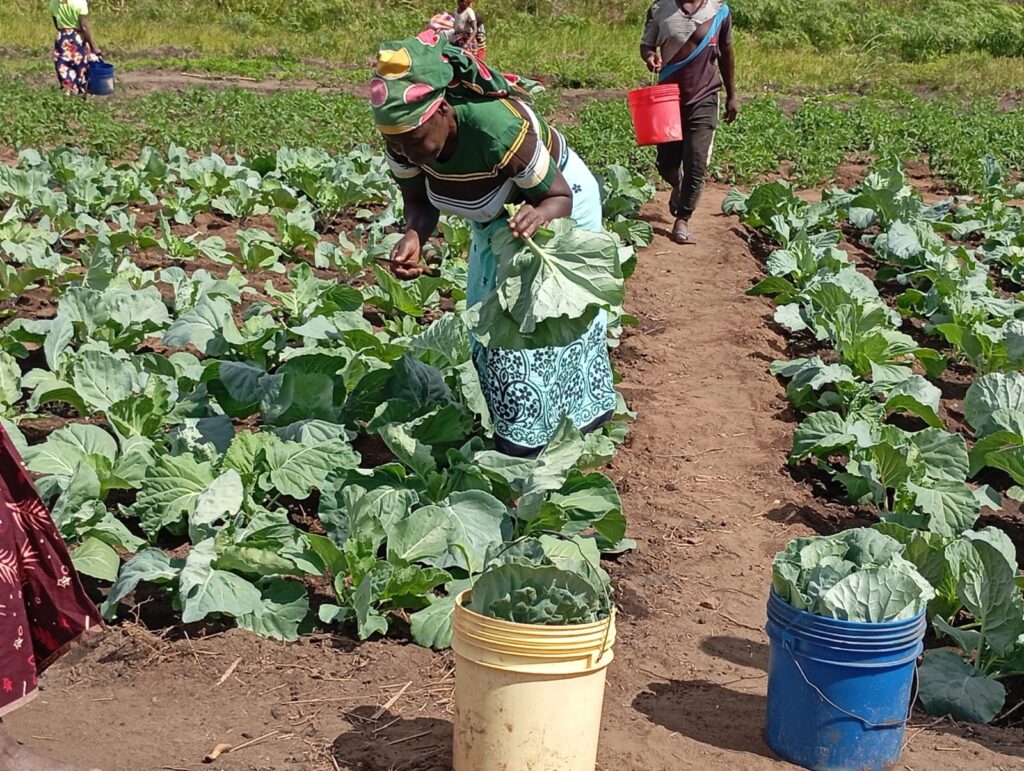In the light of the Ecosystem-Based Adaptation and Nature-Based Solutions approaches, the Wilipihera implementation team is integrating conservation agriculture to support the adaptation of communities to climate change.
The approach used in the project is the Peasant Farm School (EMC). This is an open school made up of 25 to 30 farmers who come together to learn how to improve production on their fields. With the support of field technicians, the farmers learn conservation farming techniques, as well as the production and use of organic compost.
The main conservation agriculture techniques being applied include: soil preparation, mulching, organic compost, integrated pest management and spacing during planting. Preparations are underway for training on intercropping, to be included in summer crops, and minimum tillage. These techniques are extremely useful in the context of climate change. For example, the mulching technique allows the soil to retain moisture, thus reducing the high pressure on water use.


Results achieved:
As the harvesting process progresses, part of the crop is destined for consumption and part for sale.
The commitment and dedication of the participants in the project fills us with great pride!


Amina António Braimo, 31, was born in the district of Mogincual and is a member of the Machamba School of the peasant Ophavela Olipa. Her household consists of eight members. She is the mother of four children and married to a fisherman.
Her story of impact focuses on onion production. Like many other beneficiaries, Amina António Braimo is taking part in a development project for the first time. As part of the Wilipihera project, Amina has been actively participating in the agricultural activities carried out since March in the community of Namiepe, in the district of Mogincual.
"When we started working here in the group, we were told
that we were going to produce onions, tomatoes and cabbage. I had some
experience in growing tomatoes and cabbage, but he didn't have any
experience in onion production," Amina explained.
Since childhood, onions have been a product that his family
bought at the market for consumption. For Amina, the project
Wilipihera was the best opportunity to learn and acquire
knowledge about growing onions for consumption
and for sale.
"At EMC, we learned that onions are produced as follows
the following way:
a) The place where the seed will be sown is prepared (alfobre);
b) Once it has sprouted and developed, it is transplanted to a bed (definitive field), which must also be prepared in advance;
c) The bed should be covered with grass to prevent direct sunlight;
d) It must always be watered to ensure its development," Amina explained.
Now, Amina realizes that growing onions is much easier compared to other crops. Although the harvesting process is still ongoing, her group has managed to obtain the following quantities:
Part of the harvest is being used for consumption and the other part for sale. With the sales, the group has managed to raise money:
The group also started saving.
"From now on, I won't be buying onions at the market to use in my kitchen. On the other hand, I'm preparing to grow onions on a large scale growing onions on a large scale, so that I can have large quantities both to feed my family and to sell on the market. The onions also have a high yield," said Amina, beaming.